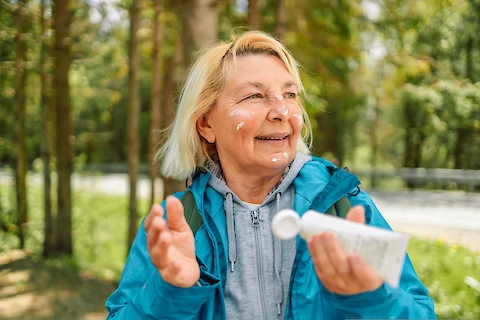
Are you a family caretaker for a beloved senior in sunny Tucson and its surrounding areas? If so, you know how important their skin health is as they age. Protecting their sensitive skin from the harsh sun is crucial, yet often overlooked in many caregiving routines. As caregivers, we play a key role in ensuring our elderly loved ones are adequately protected from sun damage. Take a look at how you can improve your elderly loved one's skin health and keep them safe outdoors.
Understanding the Different Types of Sunscreens
When it comes to sun protection, the type of sunscreen you choose makes a difference. There are two important types of sunscreen to take into account. Chemical sunscreens absorb UV rays before they reach the skin. They have active ingredients such as oxybenzone. On the other hand, physical sunscreens, also known as mineral sunscreens, deflect UV rays with ingredients like zinc oxide. While chemical sunscreens might be more comfortable to wear, physical variants are often better tolerated by sensitive senior skin. You may need to experiment to find the best and most comfortable option for your loved one.
The Importance of SPF Levels and Broad-Spectrum Coverage
The Sun Protection Factor (SPF) of your sunscreen and whether it offers broad-spectrum protection are two key factors when choosing the right product. SPF refers to the measure of how well the sunscreen protects from UVB rays – the kind that causes sunburn and contributes to skin cancer. Broad-spectrum sunscreens, however, protect from both UVA and UVB rays. For your older loved ones, an SPF of 30 or higher and broad-spectrum coverage is generally recommended.
Proper Sunscreen Application Techniques
Applying sunscreen effectively is crucial for maximum protection. Use a generous amount, aiming to cover all exposed skin. Don't overlook areas like the back of the neck, ears and tops of feet. It's best to apply sunscreen 15-30 minutes before sun exposure to allow the ingredients to fully bind to the skin.
Reapplication Requirements
Reapplication of sunscreen is just as important, especially when seniors are outside for extended periods or participating in water activities. As a rule of thumb, reapply every two hours, or immediately after swimming or sweating.
Specific Concerns Related to Senior Skin Health
As seniors age, their skin becomes thinner and more vulnerable to sun damage. Conditions such as age spots, wrinkles and skin cancers are all related to sun exposure. Regular skin checks are important for early detection of any issues.
The Role of Family Caregivers in Sun Protection
As a family caregiver, incorporating sunscreen application into your daily care routine can significantly contribute to the skin health of your senior loved ones. It's not just about applying it for them; it's also about educating them on the importance of sun protection and encouraging regular use.
Extra Help for Senior Loved Ones as the Heat Rises
Taking care of our senior loved ones' skin health is fundamental and as caregivers, we play a vital role. Sun protection is a keen part of that responsibility. And remember: you don't have to do it alone. If you live in Tucson Southeast, Green Valley, Oro Valley or Marana, professionals like those at Senior Helpers Tucson are always ready to lend a hand and provide expert care for your beloved seniors. Contact us today to learn more about the support we can provide.